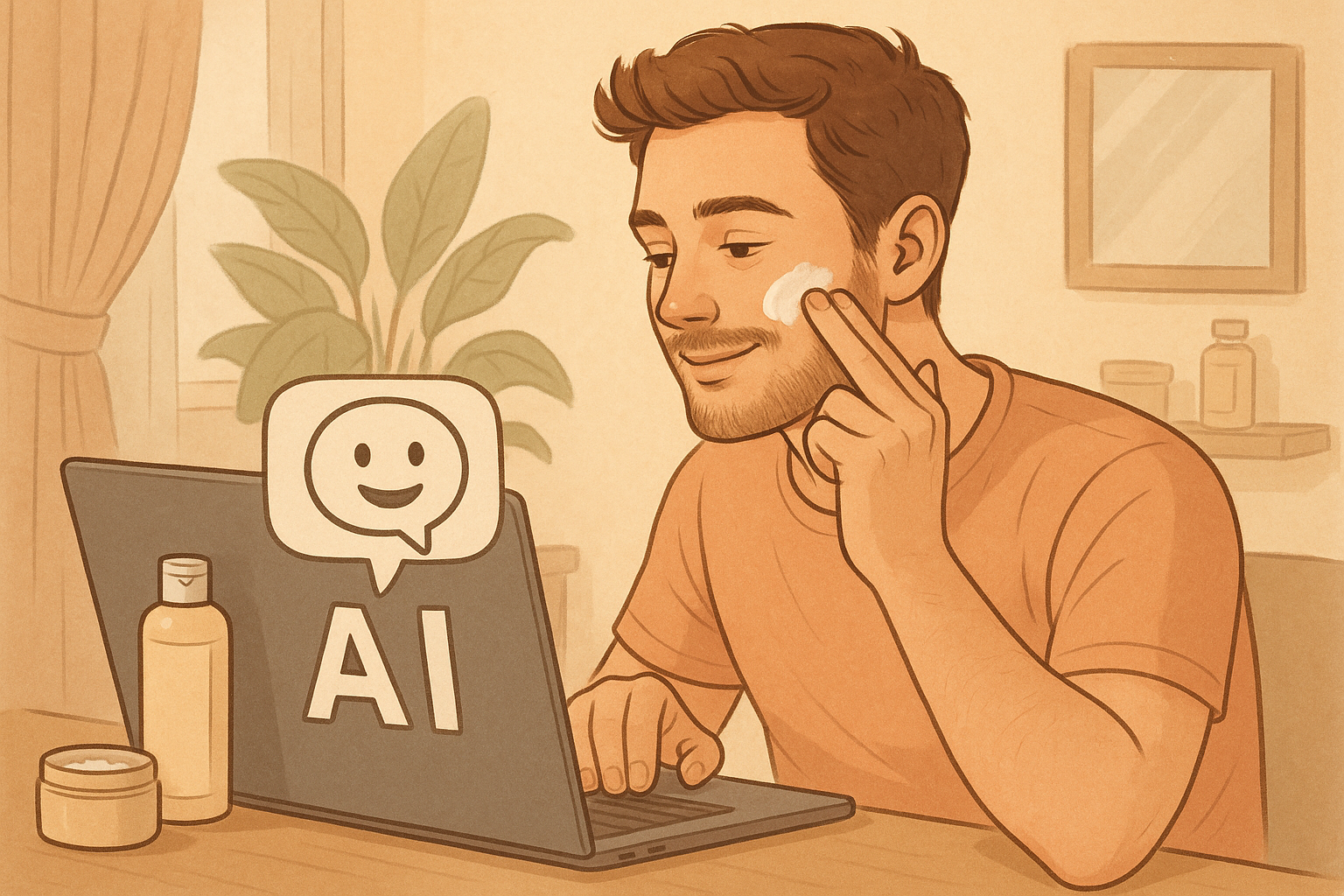In today’s fast-paced world, maintaining personal grooming and overall well-being can often take a backseat due to hectic schedules, lack of personalized guidance, or simply being overwhelmed by countless generic tips on the internet. Over the past few months, I have personally explored how AI tools can play a transformative role in improving daily self-care routines. Based on real-life interactions and practical applications, here is a case study-driven guide on how AI can help you look better, feel better, and live better.
1. AI-Powered Health and Diet Recommendations
One of the first steps toward improving well-being is maintaining a healthy diet. Often, we know what’s generally good for us, but we lack tailored recommendations based on personal health conditions, preferences, and availability of local foods.
In my own case, I sought AI’s help to develop a meal plan considering:
- High cholesterol levels
- Fatty liver concerns
- Limited time for cooking
- Pakistani cuisine options available locally
AI helped create custom diet plans that were both practical and health-focused, recommending quick options like overnight oats, chia seed drinks, easy savory breakfasts, and store-bought healthy spreads. The suggestions were not generic; they were personalized based on my health reports and lifestyle, something traditional online articles often fail to provide.
Key Benefits:
- Tailored nutrition advice for specific health conditions
- Practical meal ideas based on local availability
- Time-saving suggestions for busy mornings
2. AI for Personal Grooming and Style Choices
AI can assist with personal grooming beyond just health. For example, selecting the right skincare routine or hairstyle can be daunting due to the flood of options available online.
With AI, you can:
- Get recommendations for skincare products suited to your skin type and environmental factors.
- Visualize hairstyles and beard styles through AI-powered virtual try-on tools.
- Plan grooming schedules, like when to trim, facial treatments, or even how to manage beard growth patterns.
In my experience, AI helped me identify simple and affordable products that worked well for my skin type instead of expensive trial-and-error purchases.
Key Benefits:
- Personalized grooming plans based on your skin, hair type, and local climate
- Reduced costs by avoiding unnecessary products
- Visualization before trying a new style
3. AI-Assisted Fitness and Exercise Planning
Exercise is a crucial part of well-being, but often people struggle to choose safe and effective routines, especially when dealing with health concerns. For example, with my disc issue and back pain, many standard fitness plans were risky.
AI helped create a customized low-impact exercise plan, focusing on:
- Strengthening core muscles without putting strain on the back
- Suggesting yoga poses and stretches suitable for my condition
- Gradually increasing activity levels while tracking progress
By providing alternatives to traditional gym workouts, AI ensured that I stayed active while avoiding potential injury.
Key Benefits:
- Safe, personalized workouts based on health limitations
- Structured and progressive fitness plans
- Motivation through AI-generated reminders and progress tracking
4. AI for Mental Well-Being
Physical grooming is incomplete without mental well-being. Stress, anxiety, or lack of focus can affect appearance, sleep, and energy levels. AI-powered wellness assistants can:
- Offer daily mindfulness tips or quick breathing exercises
- Help schedule micro-breaks during work hours
- Suggest simple lifestyle changes for better sleep and relaxation
In practice, these AI-driven nudges helped me stay consistent with short meditations, digital detox breaks, and improving my daily sleep patterns.
Key Benefits:
- On-demand mental health support without therapy costs
- Improved stress management and emotional balance
- Easy-to-implement lifestyle improvements
5. AI as a Personal Coach for Habits and Routines
Consistency is key when working on personal grooming and well-being. However, forming new habits is not easy. AI can act as a virtual accountability partner, helping you:
- Set realistic goals (e.g., drink 8 glasses of water daily, walk 5000 steps)
- Track progress automatically through wearable integrations
- Get daily motivation or actionable suggestions based on your progress
For me, AI helped break down larger goals into smaller, achievable tasks. Instead of overhauling my entire lifestyle, I worked on one habit at a time, making changes more sustainable.
Key Benefits:
- Continuous support and motivation
- Data-driven habit tracking
- Long-term behavioral improvement without overwhelming yourself
6. Practical Tips to Start Using AI for Your Well-Being
If you’re considering AI as part of your personal grooming and well-being journey, here’s a quick starter roadmap based on my case study:
- Identify Your Goals: Health, grooming, mental wellness, or all of them.
- Gather Your Data: Health reports, current lifestyle patterns, available local foods, personal preferences.
- Choose the Right AI Tools: Chat-based assistants for diet planning, virtual styling apps, AI fitness planners, or habit trackers.
- Start Small: Focus on one area at a time to avoid burnout.
- Review and Adjust: AI suggestions are not fixed; keep refining inputs for better outputs.
Final Thoughts
AI isn’t just for tech enthusiasts or business professionals—it’s a powerful personal companion for everyday life. From improving diet choices and grooming routines to supporting physical and mental health, AI can offer personalized, practical, and cost-effective solutions tailored to your unique needs.
My journey with AI-driven well-being has been about progress, not perfection. Instead of following generic advice, I finally have structured, personalized guidance that fits my lifestyle and health profile. As AI evolves, its ability to act as a 24/7 personal wellness advisor will only get better—making it one of the most valuable tools for self-care in the modern age.
